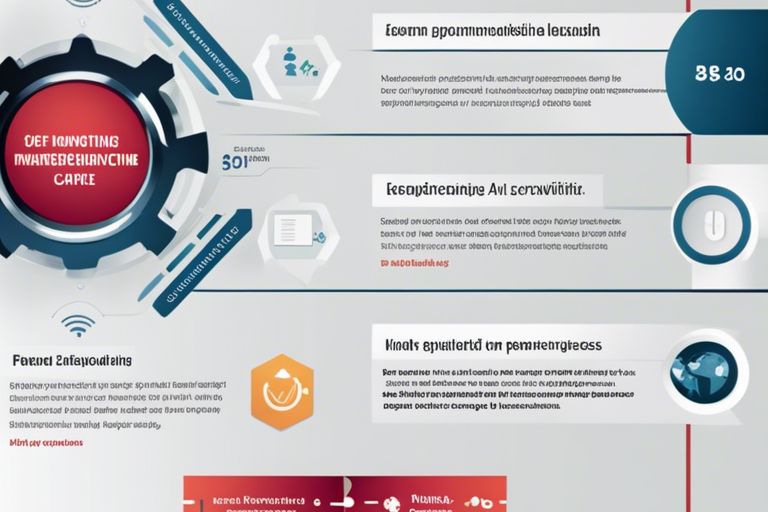Understanding AI in Marketing
Before delving into the intricacies of personalization in AI marketing, it’s necessary to grasp what AI marketing is and how it can transform your marketing strategies. By integrating artificial intelligence into your marketing efforts, you tap into advanced technologies that analyze consumer data and predict customer behavior. This allows you to create targeted campaigns that resonate more effectively with your audience. Understanding the foundational elements of AI marketing will empower you to take full advantage of its capabilities.
What is AI Marketing?
On a fundamental level, AI marketing refers to the use of artificial intelligence technologies to optimize various marketing processes and enhance customer experiences. This involves leveraging machine learning algorithms, natural language processing, and data analytics to dissect large sets of data. Through these technologies, you can identify trends, preferences, and patterns in consumer interactions, allowing for a data-driven approach to marketing.
On a practical level, AI marketing tools can automate repetitive tasks, personalize content, and analyze customer feedback much quicker than traditional methods. The result is not just increased efficiency, but also a tailored customer experience that meets and anticipates the needs of your target audience. This combination can significantly boost your engagement and conversion rates.
Importance of Personalization in Marketing
You may have noticed how consumers are becoming more demanding when it comes to their shopping experiences. Personalization in marketing isn’t just a trend; it’s a crucial part of effective customer engagement. By tailoring your marketing efforts to the individual needs and preferences of your audience, you create a connection that fosters loyalty and drives conversions. Personalized marketing makes consumers feel valued and understood, enhancing their overall experience with your brand.
Plus, evidence shows that personalized marketing can lead to higher engagement rates. According to recent studies, about 80% of consumers are more likely to make a purchase when brands offer personalized experiences. This indicates a clear relationship between personalization and customer behavior, reinforcing the need to leverage this strategy in your marketing efforts. Personalization isn’t just beneficial; it can be the difference between a one-time buyer and a loyal customer.
Key Components of AI Marketing Solutions
Marketing automation and AI-driven solutions are redefining how brands interact with consumers. When you think about AI marketing solutions, consider components such as predictive analytics, customer segmentation, sentiment analysis, and chatbots. These elements work together to optimize your marketing campaigns by delivering relevant content and recommendations to the right people at the right time. Implementing these technologies allows you to streamline your processes and effectively target audience segments.
To fully harness the potential of AI marketing solutions, you must integrate these key components into your existing strategies. For instance, predictive analytics can help you anticipate customer needs based on historical data, while chatbots can provide immediate customer service, improving user experience. By understanding and utilizing these components effectively, you can create a more personalized and dynamic approach to marketing that not only meets expectations but also exceeds them.
How to Identify Your Target Audience
You need to clearly identify your target audience to create personalized AI marketing experiences that resonate with customers. Understanding who your audience is can significantly enhance the effectiveness of your marketing strategies, making them more relevant and engaging. A well-defined audience allows you to tailor your messaging, significantly increasing your chances of capturing and retaining their attention.
Analyzing Customer Data
An effective way to begin identifying your target audience is through analyzing customer data. Utilize your existing customer base to gather insights into their behaviors, preferences, and demographics. Look at information available through your CRM, social media analytics, and website traffic statistics to identify patterns in how different segments of your audience interact with your brand. This data is a goldmine for uncovering trends that can inform your marketing strategies and help tailor your messaging to effectively meet the needs of specific audience segments.
Additionally, consider gathering qualitative data through surveys, feedback forms, or interviews. Direct input from your customers can provide context behind the numbers, helping you understand their motivations and pain points. By synthesizing both quantitative and qualitative data, you can formulate a more accurate picture of your target audience and develop strategies that align with their preferences.
Segmenting Your Audience
Even after collecting extensive customer data, your work is not done. The next step is to segment your audience into distinct groups based on specific attributes such as demographics, buying behaviors, and preferences. Segmenting allows you to cater your marketing efforts more effectively, ensuring that each group receives a message that resonates with their unique characteristics and needs. This not only enhances user experience but also increases the likelihood of conversions.
A well-segmented audience enables you to create targeted campaigns that speak directly to each group’s interests. For example, you might identify a segment of eco-conscious consumers who prefer sustainable products, and tailor your messaging to highlight your brand’s commitment to sustainability. By addressing the needs and values of each segment, you can foster a deeper connection with your customers and encourage loyalty.
Creating Customer Personas
Your next step is to create customer personas that encapsulate the traits, goals, and behaviors of your segmented audience groups. A customer persona is a semi-fictional representation of your ideal customer, based on real data and insights. When developing these personas, consider factors such as age, gender, location, interests, and challenges. This comprehensive understanding will guide your marketing efforts and ensure that your strategies resonate strongly with each persona.
Customer personas serve as a roadmap for all your marketing campaigns, allowing you to tailor messaging, content, and even product offerings to specific segments of your audience. By having a clear persona in mind, your marketing efforts will be aligned with your audience’s needs, leading to improved engagement and higher conversion rates.
Customer insights are invaluable when developing personas, as they provide a clearer understanding of motivations and preferences. Leverage text analytics, keyword research, and even social media listening tools to gather additional insights about customer sentiment and behaviors. This holistic approach will enable you to develop well-rounded personas that ensure your marketing strategies resonate with the right audience.
Factors to Consider When Personalizing AI Marketing
Once again, the landscape of AI marketing is evolving, and understanding the key factors in personalizing your marketing efforts is imperative for success. Personalization is not merely an add-on; it’s a necessity in cultivating a meaningful relationship with your audience. To effectively personalize your AI marketing campaigns, consider the following factors:
- Data Quality: Ensure consistency and accuracy in your customer data.
- Customer Segmentation: Identify and separate your audience based on distinct characteristics and behaviors.
- Technology Integration: Utilize tools and platforms that work seamlessly together to enhance personalization capabilities.
- Ethical Considerations: Be mindful of privacy laws and customer consent when handling personal information.
This comprehensive approach will enable you to create tailored experiences that resonate with your customers, increasing engagement and driving conversions.
Setup of Data-Driven Decision Making
Little do many marketers realize, but the key to effective personalization lies in robust data-driven decision making. You’ll need to establish a framework that capitalizes on data collected from various touchpoints, understanding not just what your customers are doing, but why they are behaving that way. By systematically organizing your data channels and identifying pivotal metrics, you can make informed decisions that enhance your marketing strategies.
Moreover, having a well-defined setup for data-driven decision making will involve regular audits of your data systems and continuous iterations based on the insights gained. This iterative process will ensure that your strategies remain relevant and effective as market dynamics change, helping you stay ahead of the competition.
Understanding Customer Behavior Analytics
Some might underestimate the power of customer behavior analytics, but this is crucial for shaping personalized marketing initiatives. Analytics enables you to track customer journeys, preferences, and interactions with your brand. By examining this data, you can glean vital insights that reveal the strengths and weaknesses of your current marketing tactics.
Understanding these analytics not only helps you to grasp where your customers are coming from, but it also reveals their motivations and pain points. These insights can inform your content, marketing messages, and overall approach, ensuring that they are tailored to meet your audience’s expectations effectively. Analytics can also help you determine the right channels to reach your customers and the best times to engage with them.
The Role of Automation in Personalization
Decision-making in marketing today cannot rely solely on manual operations; hence the role of automation is increasingly significant in delivering personalized customer experiences. By leveraging automation, you can streamline your processes, ensuring that your audience receives timely messages tailored to their interests and behaviors. Automated marketing workflows allow you to trigger specific campaigns based on customer actions, which enhances responsiveness and effectiveness.
Additionally, automation allows you to optimize your marketing efforts by freeing up your team to focus on more strategic initiatives. It enables you to analyze vast amounts of customer data swiftly, facilitating rapid adjustments to your campaigns based on real-time insights. This integration of technology not only enhances your personalization efforts but also boosts overall efficiency.
Role automation plays in personalization cannot be overstated. Implementing automated tools helps create a more cohesive and integrated marketing strategy, where personalization becomes a seamless part of the customer experience, engaging your audience effectively at every stage of their journey.
Tips for Implementing AI Marketing Strategies
Many businesses are embracing AI marketing strategies to enhance their engagement and to deliver more personalized experiences to their customers. However, implementing AI in your marketing efforts can be both exciting and daunting. Here are some vital tips to keep in mind as you navigate your AI marketing journey:
- Understand your target audience’s behavior.
- Invest in the right tools that align with your goals.
- Encourage collaboration between data scientists and marketing teams.
- Monitor and analyze campaign performance regularly.
- Engage in continuous learning about new AI technologies.
Assume that by following these tips, you will be well on your way to successfully implementing AI marketing strategies that resonate with your audience.
Choosing the Right AI Tools and Platforms
On your journey to personalize AI marketing experiences, the first step is selecting the right tools and platforms. With numerous AI solutions available, it’s crucial to identify which ones match your specific needs and objectives. Start by assessing your current marketing processes and where AI can add the most value. For instance, if your focus is on customer segmentation, consider platforms that specialize in predictive analytics.
Another aspect to look at is the scalability of the AI tools you choose. As your business grows, so will your marketing needs. Opt for platforms that can not only address your present requirements but also adapt as your company evolves over time. You should also ensure that these tools are user-friendly and offer sufficient support and resources to help you get started.
Creating Engaging Content for Different Segments
Tips for creating engaging content include understanding the varying preferences and needs of different audience segments. You can achieve this by segmenting your audience based on demographics, purchase history, and behaviors. Craft tailored messages for each group to ensure that your content resonates deeply with your audience. Utilize AI to facilitate this personalization by analyzing data that can help you know what type of content each segment prefers.
Marketing takes on a dynamic approach when you harness the power of AI for content creation. By integrating AI-driven insights, your content can become more relevant, timely, and engaging. You can employ AI tools to automate content creation processes, ensuring that you have high-quality material ready for various segments. This not only saves time but also enables you to focus more on strategy and creativity, allowing you to interact more meaningfully with your audience.
Continuously Testing and Optimizing Campaigns
Different marketing campaigns can yield vastly different results. To ensure that you are getting the most out of your AI-driven marketing strategies, it’s vital to engage in continuous testing and optimization. Conduct A/B tests to see which content resonates best with your audience and utilize the feedback to refine your approach. Additionally, keep a close eye on metrics that matter to your objectives – whether that be lead conversions, engagement rates, or customer feedback.
Continuously fine-tuning your campaigns allows you to adapt swiftly to changing market conditions and audience preferences. By being proactive with your optimization strategies, you can maximize your marketing effectiveness and overall ROI. Recall, AI thrives on data, so the more information you collect regarding campaign performance, the better equipped you will be to make informed decisions moving forward.
How to Measure the Success of AI Personalization
Your ability to measure the success of AI personalization will ultimately determine how effectively you engage your audience and drive conversions. To begin this process, it’s imperative to establish a clear understanding of what success looks like for your specific marketing efforts. Implementing a structured approach with defined metrics will help you assess the effectiveness of your AI-driven campaigns and guide future strategies.
Defining Key Performance Indicators (KPIs)
KPIs are the cornerstone of any successful measurement strategy. Concerning AI personalization, the right KPIs will vary depending on your business goals, whether that be increasing engagement, driving conversions, or enhancing customer satisfaction. Common KPIs for AI personalization might include metrics like click-through rates, conversion rates, and average order value. By aligning these indicators with your overall marketing objectives, you can achieve a more comprehensive view of how personalization impacts your bottom line.
Additionally, don’t overlook qualitative KPIs, such as customer feedback and brand sentiment analysis. These can provide invaluable context and depth to your more quantitative metrics, enabling you to make balanced decisions that consider the nuances of customer experience.
Utilizing Analytics Tools for Insights
Even the most well-defined KPIs will be ineffective without the right tools to gather and analyze data. Utilizing advanced analytics tools can provide you with critical insights into how your audience is interacting with your personalized marketing efforts. Whether you use Google Analytics, Adobe Analytics, or specialized AI-driven platforms, these tools can help you track user engagement, segment your audience, and identify trends and patterns. This data will allow you to evaluate the performance of your campaigns and fine-tune your strategies based on what resonates with your audience.
A good analytics tool will also allow you to integrate various data sources, making it easier to get a holistic view of your personalized experiences across different channels. With these insights, you can spot opportunities for enhancement and understand where your personalization efforts are thriving or falling short.
Adjusting Strategies Based on Data
While collecting data is crucial, making strategic adjustments based on the insights you gather is where the real impact lies. Continuously monitoring your KPIs and analyzing the data will help you identify which elements of your AI personalization are working well and which need refinement. For instance, if you notice a significant drop in engagement for a specific type of content, you may need to rethink your approach to that segment of your audience.
Furthermore, your strategy should be flexible. Insights derived from ongoing analysis might reveal shifts in consumer preferences or emerging market trends that necessitate changes to your personalization tactics. By remaining agile and responsive to data, you can maintain the relevancy and effectiveness of your AI marketing efforts.
Insights gained from data analysis are invaluable for long-term success. They empower you to not only enhance current campaigns but also inform your future marketing strategies, ensuring your personalization efforts remain aligned with your audience’s evolving needs and preferences.
Ethical Considerations in AI Marketing
Despite the advancements in AI technology that promise personalized marketing experiences, there are critical ethical considerations you must not overlook. As you leverage AI tools, the balance between enhancing customer experience and respecting ethical boundaries must be maintained to build a sustainable relationship with your audience. Addressing customer privacy concerns is one of the most crucial aspects of ethical AI marketing.
Understanding Customer Privacy Concerns
Marketing strategies that utilize AI to gather and analyze customer data offer significant advantages, but they also raise crucial questions about how that data is used. Customers are increasingly concerned about the privacy of their personal information, and as a marketer, you must be vigilant about how you handle it. Transparency is vital; you need to clearly communicate what data you collect, why you collect it, and how it will be used. Failing to adequately address these concerns can erode trust and damage your brand’s reputation.
Transparency and Trust Building
Privacy issues extend beyond mere compliance; they are about building a relationship of trust with your customers. Transparency regarding the algorithms and data usage involved in your AI marketing strategies not only fosters trust but encourages customers to engage more willingly. By explaining your data-handling practices, you’ll not only comply with ethical standards but also empower your audience to make informed decisions regarding their interactions with your brand.
Considerations around transparency should incorporate user-friendly privacy policies and clear consent protocols. Providing clear options for customers to opt-out or modify their preferences cultivates an environment where they feel respected and valued. When customers trust your brand, they are more likely to engage and remain loyal over time.
Compliance with Data Protection Regulations
Considerations about compliance with data protection regulations such as GDPR, CCPA, and other laws are non-negotiable. You need to ensure that your AI marketing strategies are compliant with these regulations to protect your customers and avoid potential legal ramifications. Non-compliance not only poses fines but also jeopardizes your brand’s reputation, potentially leading to a loss of business in the long run.
For instance, ensuring that data subjects have the right to access, rectify, and delete their personal data requires systematized practices in your marketing operations. By implementing robust data management technologies and processes, you can ensure that your AI marketing complies with all relevant regulations while also instilling a sense of security and respect for personal privacy among your customers.
Summing up
Hence, personalizing AI marketing experiences is not just about utilizing technology; it’s about understanding your audience and leveraging insights to create meaningful connections. As you implement the strategies outlined in this guide, you will be empowered to craft tailored marketing messages that resonate with your target demographics. By harnessing AI capabilities, you can analyze customer behavior and preferences to refine your approach, ensuring that your campaigns are both effective and engaging. This will lead to improved customer satisfaction, loyalty, and ultimately, business growth.
Recall, the key to successful personalization lies in a balance of data-driven insights and creative storytelling. As you adopt these practices in your marketing endeavors, stay agile and responsive to feedback and patterns that emerge. Continuous optimization of your AI-driven campaigns will not only enhance your overall marketing strategy but also solidify your position as an industry leader who prioritizes customer experience. Embrace these insights, and watch your efforts transform into meaningful marketing experiences for your audience.





0 Comments